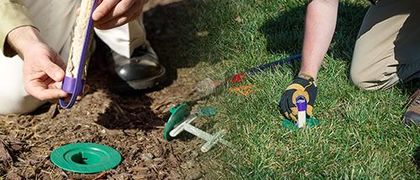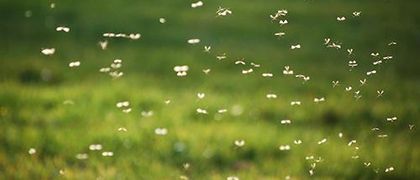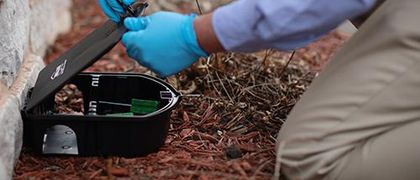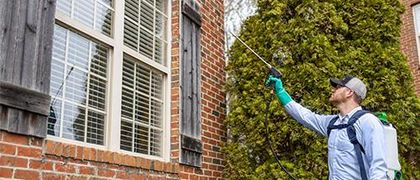Spider Identification Guide for Des Moines Residents
Finding a spider in your home might give you the creeps, but not every eight-legged visitor is a danger. With dozens of arachnid species across Iowa, including common house spiders and more elusive types, knowing which one you’re dealing with helps you decide whether to act. Spiders are part of the arachnid family, which also includes ticks and mites; however, in homes, spiders are usually the primary concern.
This spider identification guide is designed specifically for Des Moines homeowners who want to feel more confident about what’s lurking in the basement or scuttling across the garage.
Whether it’s a common house spider or something more concerning like a brown recluse, knowing what to look for helps you avoid unnecessary panic and know when it’s time to call in pest control experts.
Key Takeaways
- Iowa homes often host harmless spiders, such as the orb weaver and the cellar spider.
- Venomous spiders, such as the brown recluse and black widow, are rare but possible.
- Basements, garages, and crawl spaces are the most common hiding spots.
- A pest control professional can identify spider issues early and prevent them from spreading.
Common Spiders Found in Des Moines Homes
Orb Weavers
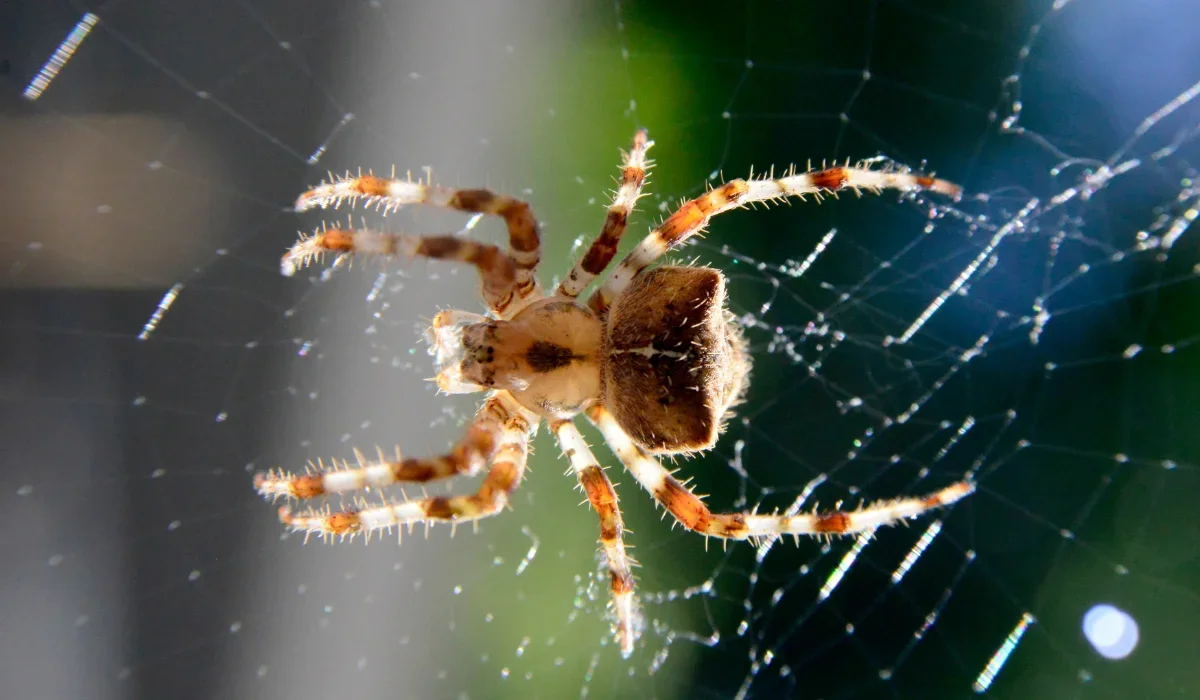
One of the most recognizable types of spiders, orb weavers build large, symmetrical webs, often outdoors between porch rails or along window eaves. They come in many patterns and colors, including the striking yellow garden spider. These spiders are not aggressive and help regulate insect populations.
Cellar Spiders
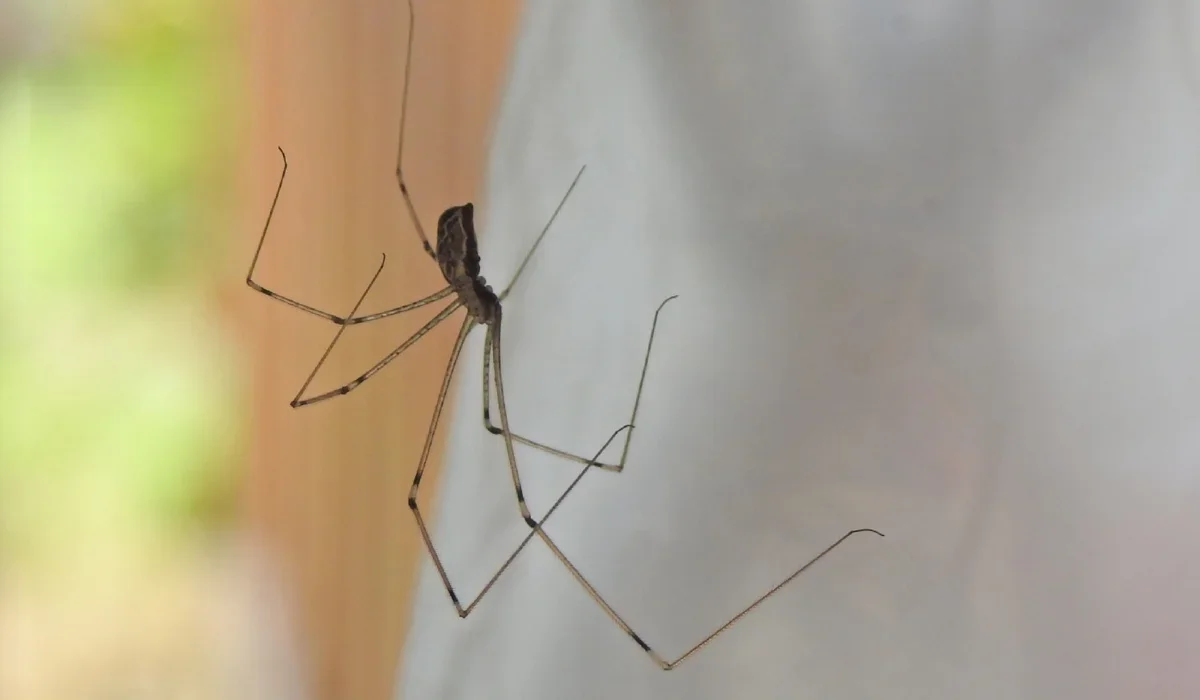
Also called “daddy-longlegs”, cellar spiders have tiny bodies with extremely long, thin legs. You’ll often see them in garages, basements, or crawl spaces where it’s dark and humid. While their webs may look messy, they aren’t harmful and rarely leave them intact.
Common House Spider
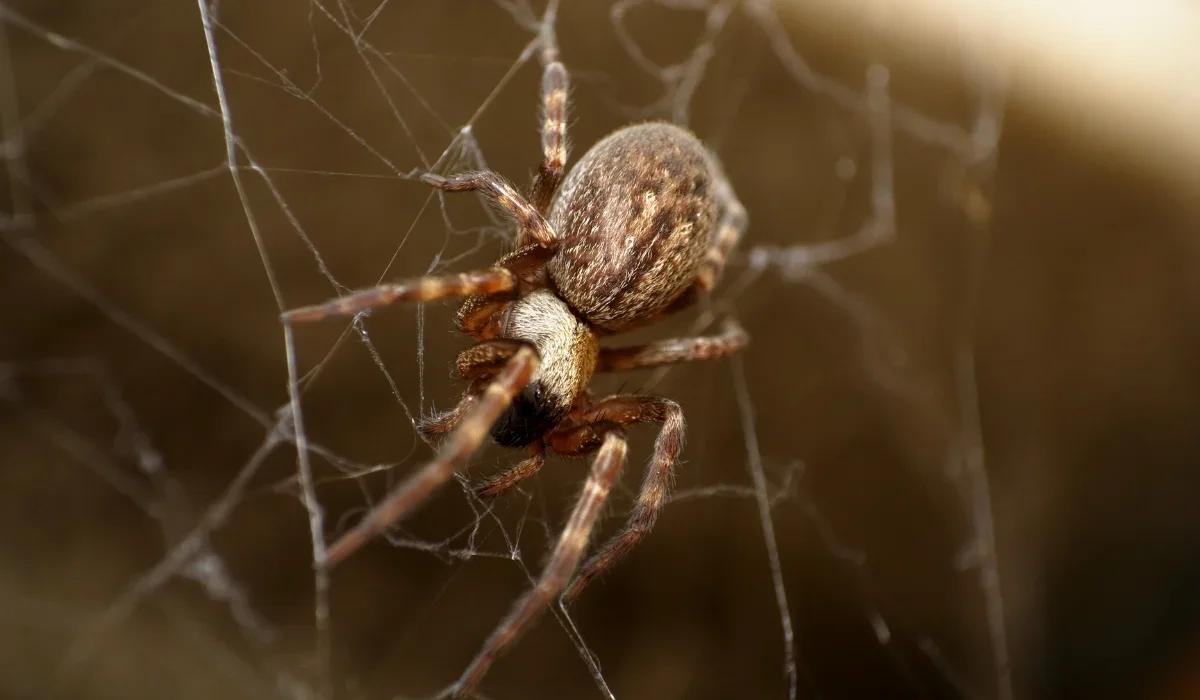
This cobweb spider, often mistaken for other household spiders, builds messy, tangled webs in corners, closets, or along ceilings. They belong to the Theridiidae family and are frequently found near light sources where they catch flying insects.
It’s brown or gray with a rounded abdomen. House spiders aren’t aggressive and typically stay out of your way.
Funnel Weavers and Grass Spiders
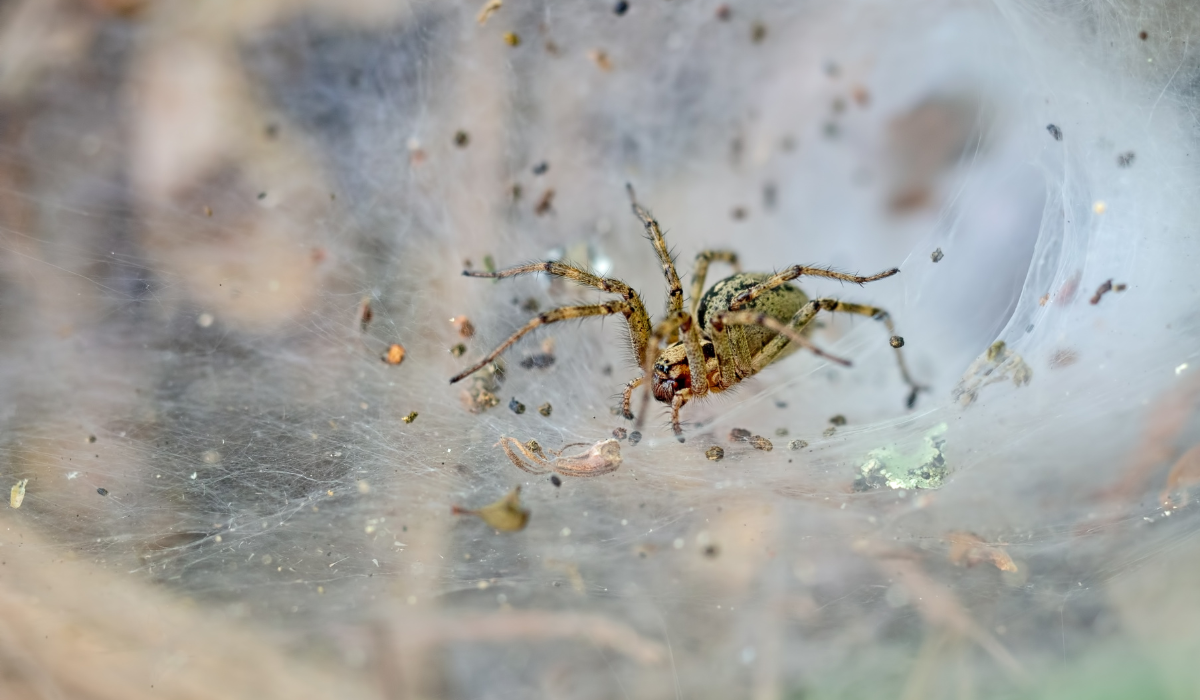
These spiders are known for their sheet-like webs, which feature a small tunnel where they hide. Funnel weavers are fast and may dart across floors or walls. They resemble wolf spiders but are not venomous.
Wolf Spiders
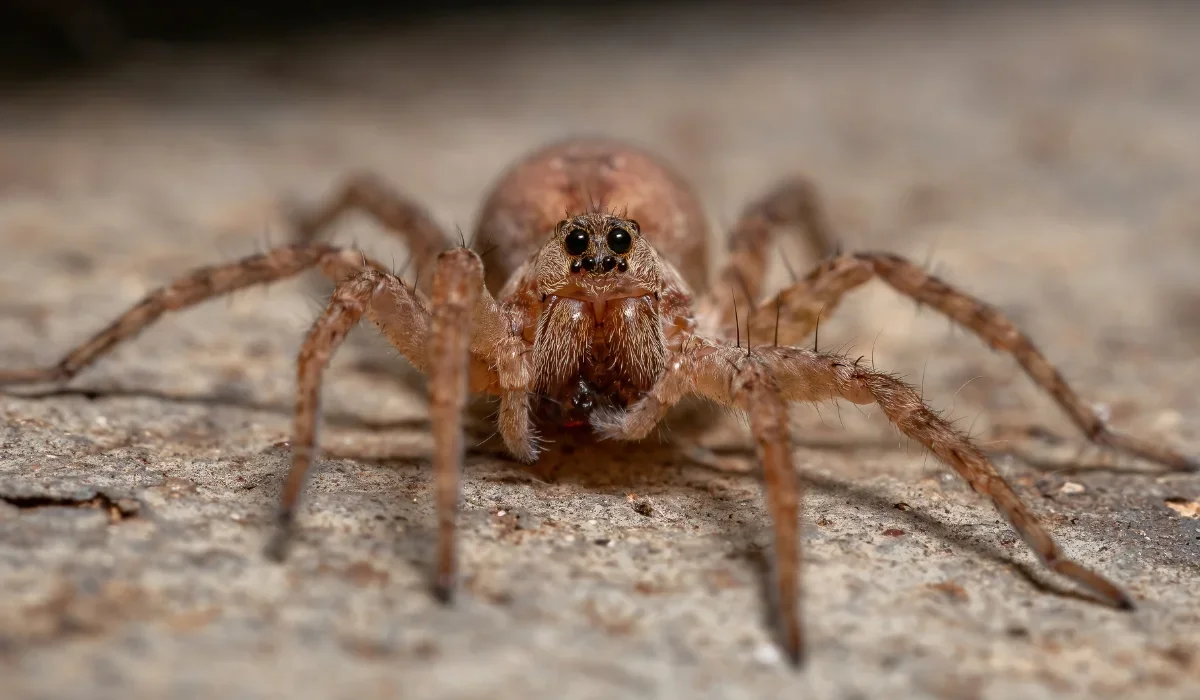
With a large size and hairy legs, wolf spiders can seem intimidating. Unlike most, they don’t use webs to catch prey. Instead, they hunt insects by ambush. You’ll often find them wandering garages and basements, which makes spider control a bit trickier.
Jumping Spiders
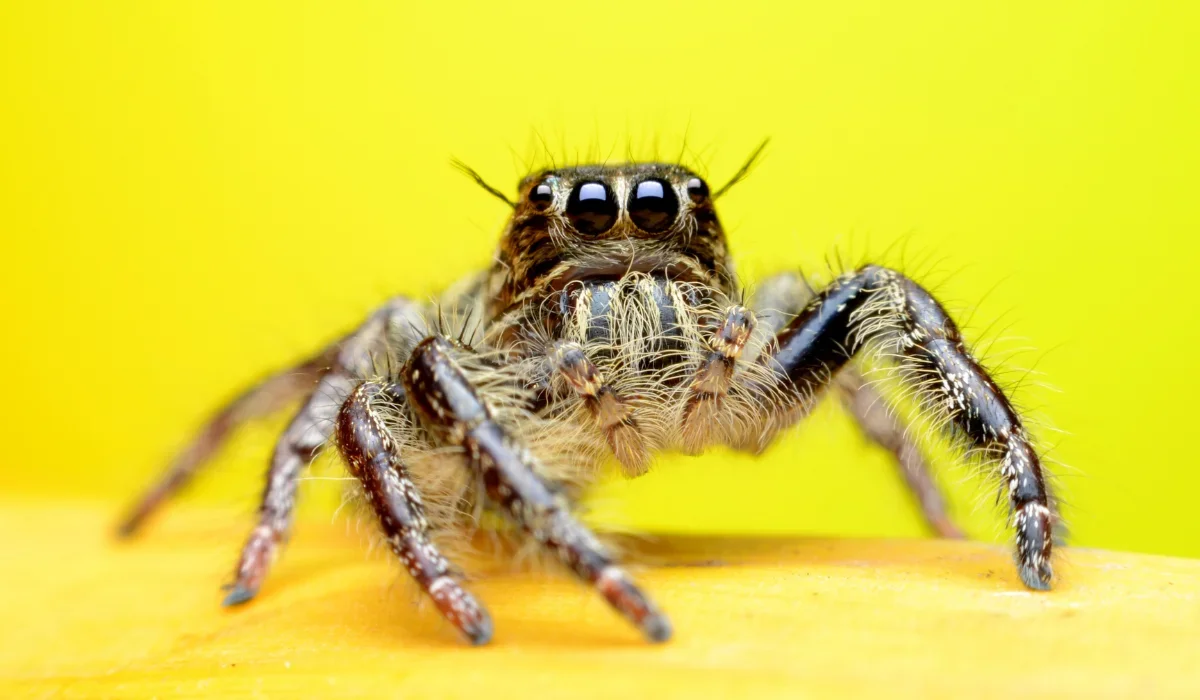
These small, compact spiders possess excellent vision and are capable of jumping to catch their prey. Despite their sudden movements, they’re non-aggressive and typically dark with colorful markings.
Spiders To Watch For in Iowa
Brown Recluse Spiders
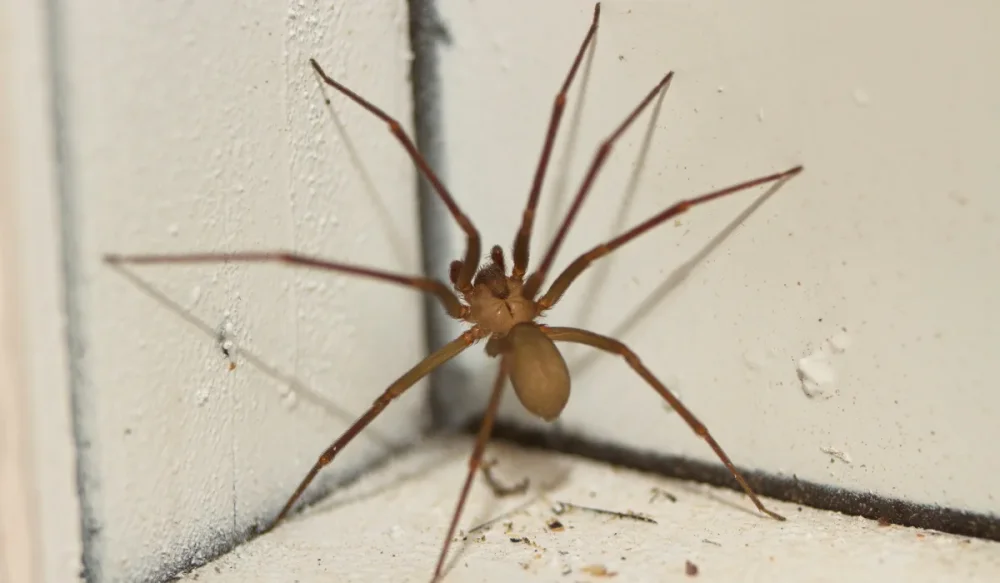
These spiders are shy but venomous. You can identify a brown recluse by the violin-shaped marking on its back and six eyes instead of the usual eight. They prefer dark, undisturbed places, such as boxes, attics, and wall voids. If bitten, you may need medical attention.
Black Widow
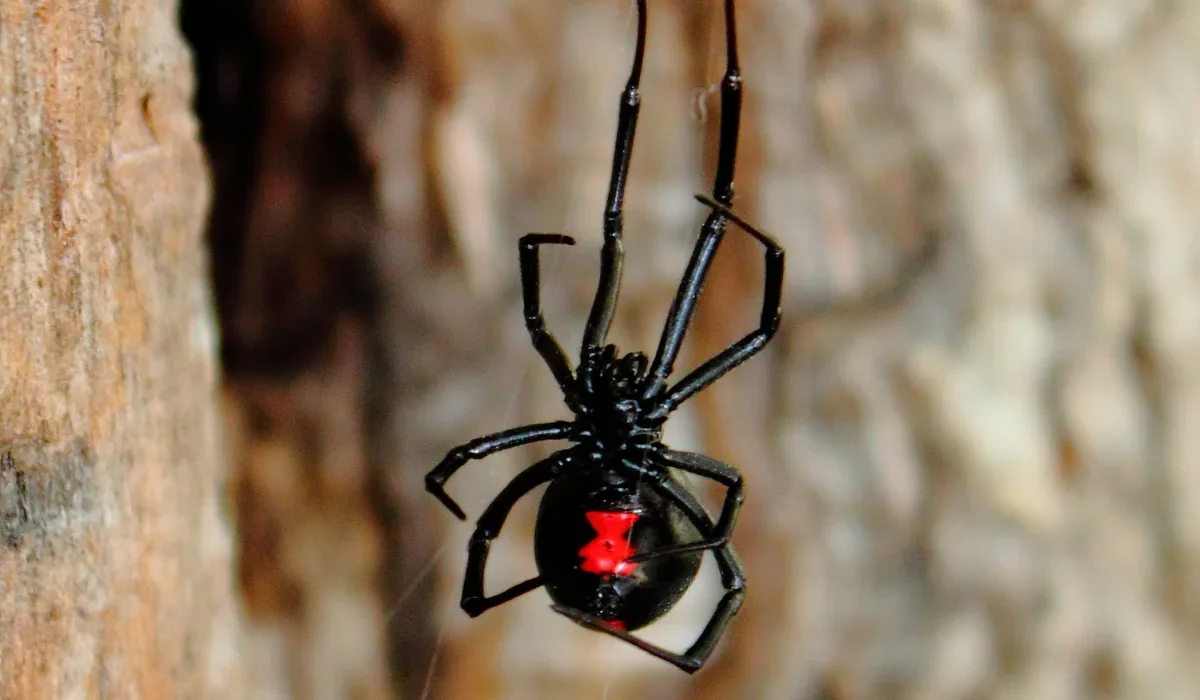
Easily identified by the distinctive red hourglass on its underside, the black widow spider prefers secluded spots, such as under porches, woodpiles, or cluttered storage areas. While bites are rare, they can be serious, so it’s best to leave their removal to professionals, such as exterminators.
Yellow Sac Spider
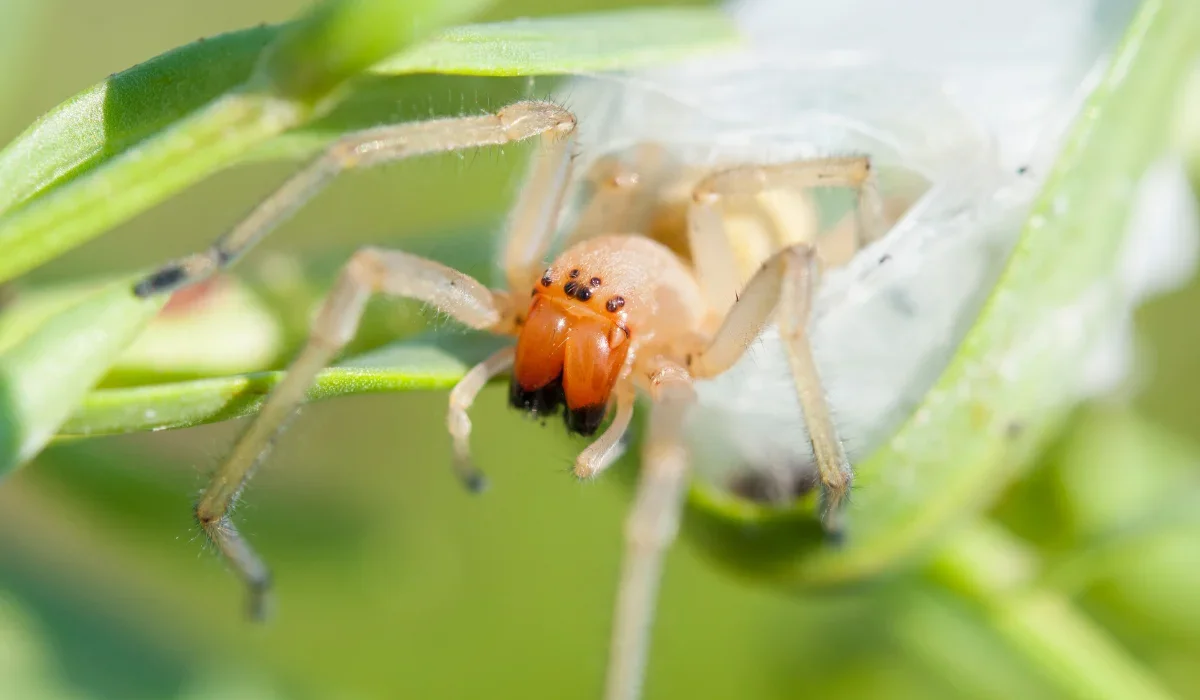
This spider is pale yellow and often hides in ceiling corners or behind picture frames. It doesn’t spin webs to catch prey but may bite when disturbed. The bite can be painful but is rarely serious.
Fishing Spiders (aka Fisher Spiders)
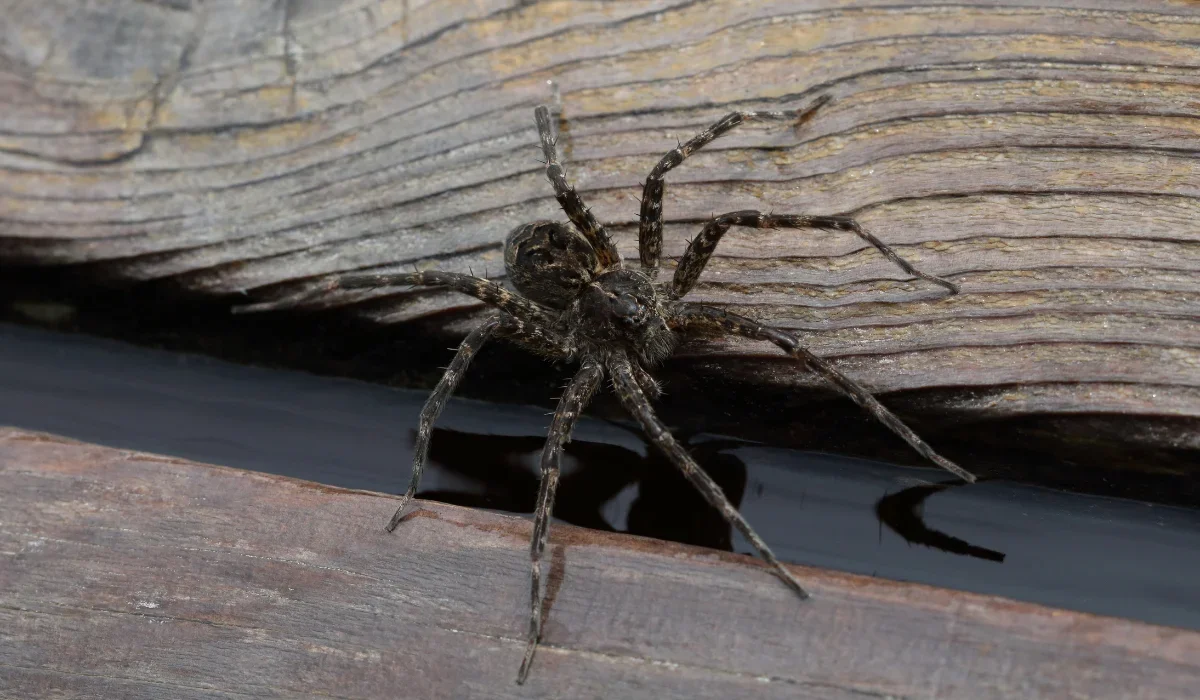
Fishing spiders, sometimes called fisher spiders, are large, semi-aquatic spiders found near water sources like ponds, creeks, or even backyard pools.
They can walk on water and catch small insects, as well as tadpoles or tiny fish.
Though intimidating due to their size, fishing spiders are not aggressive and rarely bite humans.
Where Spiders Hide in Des Moines Homes
Spiders thrive in areas that are undisturbed and offer steady food sources. Familiar hiding places include:
- Basements and crawl spaces
- Garages, especially corners and storage shelves
- Closets and behind furniture
- Under sinks or near plumbing fixtures
- Exterior sheds and woodpiles
Egg sacs are also a sign of an active spider population. These look like tiny white balls, often found tucked away in webs or hidden in dark corners.
While most spiders prefer dry, undisturbed areas, fishing spiders may be found near indoor water sources, such as basements with high humidity or laundry sinks.
Are Spiders in Iowa Dangerous?
Most spiders in Iowa aren’t dangerous and are more of a nuisance than a threat. However, venomous spiders, such as the brown recluse and black widow, can pose a risk, especially to children, pets, or individuals with pre-existing allergic reactions.
If you suspect a spider bite and experience swelling, pain, or nausea, seek medical attention promptly.
What To Do About Spider Problems
If you’re dealing with a consistent spider presence, it’s time to look at the root of the issue. Spiders enter homes in search of food, typically insects, and shelter. That means the real problem may be another pest infestation.
Miller Pest & Termite offers spider identification and control services across Des Moines, Kansas City, and Omaha. Just give us a call, our team knows how to handle both common and venomous spiders safely, whether they’re hiding behind your furnace or spinning webs across your porch.
Regular inspections, sealing entry points, and reducing clutter go a long way in preventing spiders from moving in. And if you notice egg sacs or multiple webs appearing in your home, it’s best to let local exterminators assess the situation.
FAQs
What types of spiders are common in Des Moines homes?
Homeowners in Des Moines often encounter orb weavers, cellar spiders, wolf spiders, and jumping spiders. These are mostly harmless and play a role in maintaining healthy insect populations.
Are brown recluse spiders found in Iowa?
Yes, though they’re not . Brown recluse spiders live in Iowa, particularly in dark, undisturbed areas such as basements or storage closets, but they’re rare. If you see one, it’s smart to contact a pest control professional.
How can I prevent spider infestations?
Keep your home clean and clutter-free, seal gaps around doors and windows, and reduce outdoor lighting at night. Regular pest control treatments can also help minimize spider food sources, such as insects.
Get Help Now!


